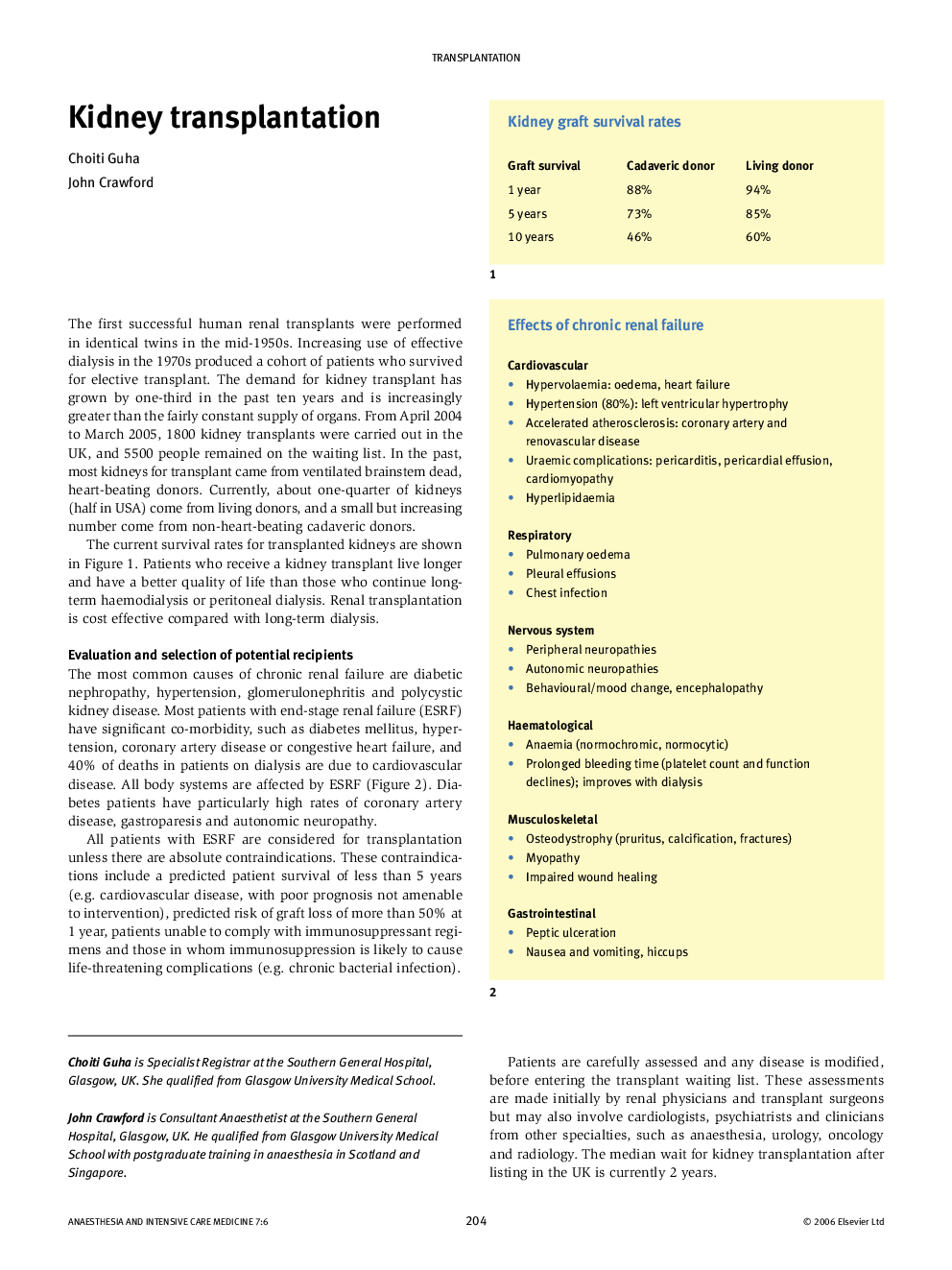| Article ID | Journal | Published Year | Pages | File Type |
|---|---|---|---|---|
| 2743844 | Anaesthesia & Intensive Care Medicine | 2006 | 4 Pages |
All patients with end-stage renal failure, and without absolute contraindications, will be considered for kidney transplantation. Patient survival and quality of life increase with transplantation; a cost-effective treatment. In the UK between 2003 and 2004, 1800 kidney transplants were carried out, with 5500 patients remaining on the waiting list. These patients have considerable comorbidity that requires assessment before listing for transplant. Immediate preoperative anaesthetic assessment focuses on cardiovascular morbidity, and fluid and electrolyte status. General anaesthesia is most commonly used. The risks and treatment of intraoperative hyperkalaemia are discussed. Delayed graft function is associated with reduced length of graft survival. Excellent perfusion of the grafted kidney must be achieved when the vascular clamps are removed. This is achieved by administering large volumes of 0.9% saline before reperfusion and aiming for a systolic blood pressure greater than 130 mm Hg and a central venous pressure greater than 12 mm Hg. Other drugs are often given to encourage early urine output. The paediatric kidney recipient and the management of the living kidney donor are also discussed in this article.
